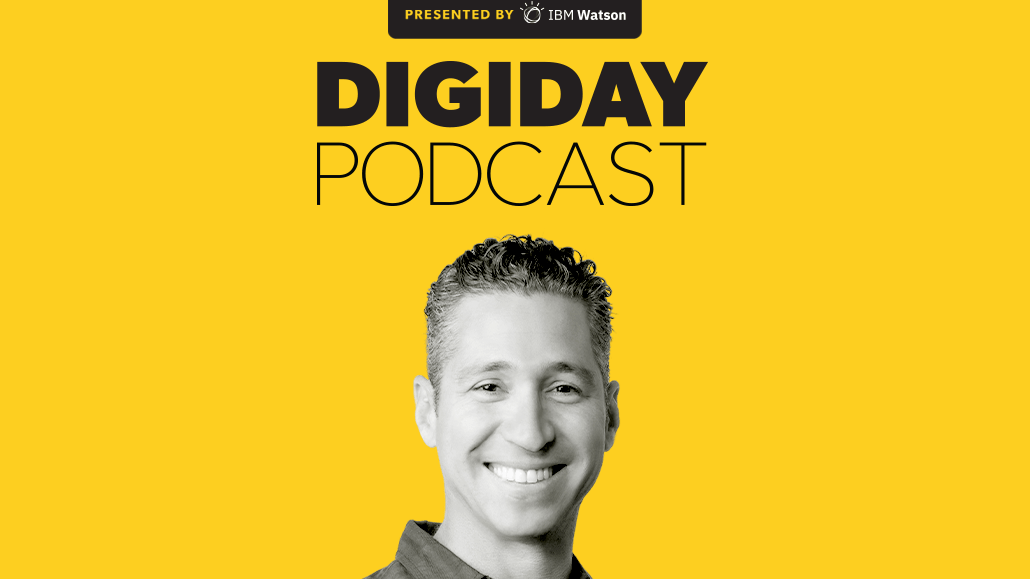Secure your place at the Digiday Media Buying Summit in Nashville, March 2-4
Minute Media’s Rich Routman explains how B2B tech is becoming a bigger part of the media company’s overall business

Subscribe: Apple Podcasts | Stitcher | Google Play | Spotify
In its tenth year of being in business and after a string of publisher purchases — which have included The Players’ Tribune and FanSided — Minute Media made its first tech-centric acquisition in 2021 with the pickup of publishing tech platform Wazimo in November. The acquisition reflects how tech is becoming a bigger component of Minute Media’s overall business and how its B2B tech revenue is becoming interwoven with its advertising revenue
“The B2B side of our business, it’ll end up [in 2021 having accounted for] 60-ish percent of our revenue. It’s a big part of that business. We’re as much of a tech company as we are a publishing business,” Minute Media president Rich Routman said in the latest episode of the Digiday Podcast.
The lines between Minute Media’s tech and publishing businesses are even blurrier than that. That percentage of overall revenue represented by B2B actually includes advertising revenue. While Minute Media does some deals in which it licenses its technology to companies for a fee, it also structures deals to include an advertising revenue-share component, which can also result in Minute Media selling ads for its tech clients.
“As we become more flexible in our business model, the B2B revenues have grown significantly on the back of being B2B deals on a rev-share basis supported by advertising or B2B revenues on a license-fee basis. But the B2B business as a whole is larger than the [owned-and-operated] brands,” Routman said.
Here are a few highlights from the conversation, which have been edited for length and clarity.
Build vs. buy
When it comes to technology, we’ve been in build mode. We felt like, with the team we have and the expertise we had in house, there wasn’t really anything we were focused on that we couldn’t build. And as we started working more closely with Wazimo — and obviously it’s really important for every publisher to get their heads and arms around first-party data — it could be a great bolt-on to Voltex. The development pipeline around something like that, it’s not two months, because otherwise we would have built it ourselves. It was going to take us a long time to catch up.
Margin vs. profitability
At this stage of the business, we’re more interested in margin than profitability because we’re not done making acquisitions. Anytime you acquire a business, it’s not just acquiring the business and its profitability; it’s how much you’re going to invest into that business, once you acquire them, to get them from point A to point D. If you buy a business solely on the basis of its profitability today, it’s probably not going to be that profitable tomorrow. We’re not a private equity firm.
Breaking even
Break-even is really where we’re focused on being right now. The days of investing millions of dollars to grow the business every year and shredding that capital are kind of behind us at this point. It’s more about how we choose to deploy the capital. We’re deploying it through M&A. We’re deploying it in technology. And we’re deploying it through beefing up our teams.
An operating margin mindset
I’m really interested in understanding the operating margin of each of our individual assets. How does FanSided look on an operating margin basis? Because it has a lot of shared resources. It has finance and HR that come from central. So yes, we can look at overarching profitability, but because we’re in a number of different areas, you want to look at is this tactic or this asset or this technology performing well on an operating margin basis? Are the people that are charged with it doing the smart things for the business in order to make it profitable today or in the future?
More in Media

Creators eye Snapchat as a reliable income alternative to TikTok and YouTube
Figuring out the Snapchat formula has been very lucrative for creators looking for more consistent revenue on a less-saturated platform.

In Graphic Detail: Subscriptions are rising at big news publishers – even as traffic shrinks
Publishers are raising prices, pushing bundles and prioritizing retention to make subscriptions a steady business amid volatile traffic.

WTF is Markdown for AI agents?
AI systems prefer structured formats or APIs to ingest and surface content more efficiently. And “markdown” has quickly become the common language used by AI systems and agents.








